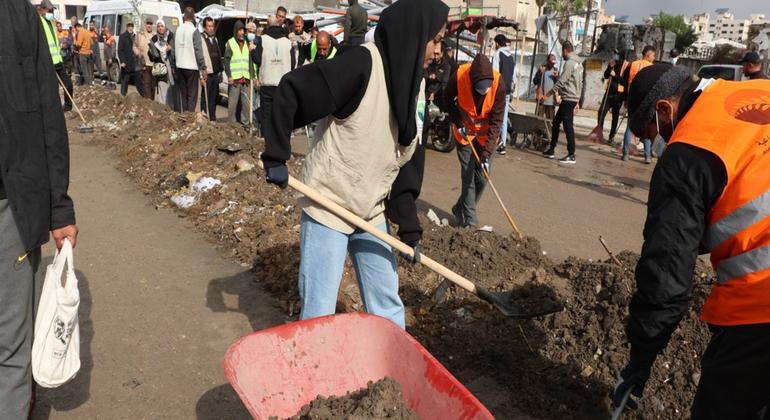At every negotiating table and in every diplomatic statement is a harsh truth shared by nations on the front lines of the climate crisis: without finance, there is no path to security, justice or survival.
Many urgent measures are needed to ensure a livable planet and protect millions of lives. But all of them – every breakthrough, every shield of resilience – depends on one essential driver: funding.
On Saturday, discussions at the United Nations climate change conference, as the annual COPs are officially called, revolved around financial mobilization, or what leaders called the engine of the climate transition.
A question of survival
Convening the third high-level ministerial dialogue on climate finance, COP30 We heard from representatives of nations deeply affected by climate impacts, many of whom described access to financial resources as “a matter of survival.”
UN President of the General Assembly Annalena Baerbock said in her opening remarks that COP30 should mark the start of implementing annual climate finance of up to $1.3 trillion – disbursements that “reach those who need it most, quickly, transparently and equitably”.
She emphasized that climate action and social justice are “inseparable,” noting:
“Climate insecurity fuels hunger and poverty, poverty fuels migration and conflict; and conflicts, in turn, deepen poverty and discourage investment. »
Breaking this vicious cycle, she said, is essential to achieving global climate goals.
Renewable energies take the lead
Reflecting on the 10th anniversary of Paris AgreementMs. Baerbock recalled that in 2015, many delegates were moved to tears by the historic outcome that produced the first legally binding global climate treaty, involving more than 190 countries.
She pointed out that at the time, renewable energy was widely considered “unrealistic”. Today, it is the fastest growing energy source on Earth.
By 2024, global investment in clean energy will reach $2 trillion, about $800 billion more than in fossil fuels. Solar power has become the cheapest form of electricity in history.
Africa’s untapped potential
Yet Baerbock warned that “vast potential remains untapped because capital is still not reaching where it is most needed”, notably in Africa.
More than 600 million Africans still lack access to electricity, even though the continent’s renewable energy potential is 50 times greater than projected global electricity demand for 2040.
She urged developed countries to fulfill their technological and financial commitments and advance the reform of global financial institutions.
The lifeblood of climate action
The UN’s executive secretary on climate change, Simon Stiell, also spoke at the meeting, highlighting the transformative power of climate finance.
He described finance as “vital element of climate action”, capable of transforming “plans into progress” and “ambition into implementation”.
Mr. Stiell stressed that the most vulnerable countries continue to face major challenges in accessing long-promised funds.
“When finances flow, ambition grows”
Despite billions being invested around the world in clean energy, resilience and just transitions, Stiell said the total volume remains “neither enough nor predictable enough” and is not equitably shared.
At COP30, the world is looking for proof that climate cooperation works.
“Real finance, flowing quickly and fairly, is at the heart of this evidence,” he said, urging delegates not only to demonstrate that climate cooperation works, but also that investments made today can shape “the growth story of the 21st century.”
The UN climate chief stressed:
“When funding flows, ambition grows,” enabling implementation that creates jobs, lowers the cost of living, improves health outcomes, protects communities and ensures a more resilient and prosperous planet for all.
UN NewsEastreport from Belémgiving you front row coverage of everything happening at COP30.
Originally published at Almouwatin.com








